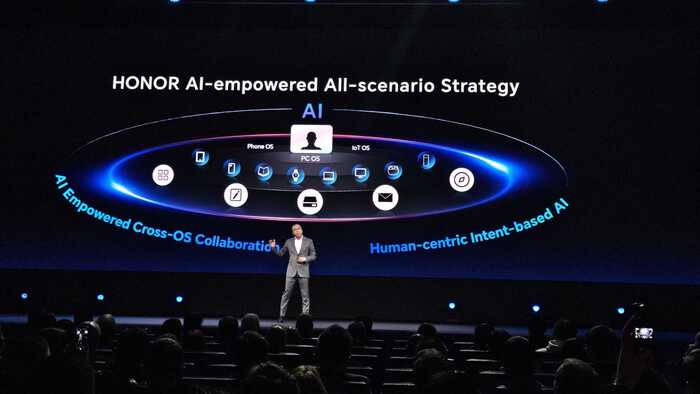Enlarge image
Photo: fStop Images - Caspar Benson / Getty Images
When I was eight years old, I once wrote a letter to the television professor Heinz Haber.
I informed him that I was very enthusiastic about astronomy and that I would therefore like to spend three weeks with him over the coming summer vacation.
Haber actually wrote back to me.
Although he rejected my vacation plans, he warmly encouraged me to continue to discover the world with enthusiasm.
I imagine today how he read the children's letter to his wife and I hope they both laughed a little, but heartily.
Perhaps she even said to him: "You Heinz, you have to write back to him!"
In any case, the brief exchange of letters was a decisive, formative experience for me.
It confirmed my childlike feeling that I was on the move to a good, exciting future.
I sat there in our old coal mine in the northern Ruhr area and dreamed of becoming an astronaut one day while the men outside drove "to the hut" or "to the Pütt" on shift.
That was around 1971 and there were probably magazines or books in my children's room at the time, in which I could read about how science and technology would change my world.
Basically and always for the better.
By the year 2000 at the latest, it was widely assumed at the time, space travel would definitely be part of everyday life and Groß-Frank would then glide to work by air taxi (of course I couldn't imagine: working. Or experiencing the distant year 2000, the epitome of the future. Or home office).
Everyone lived in prosperity, diseases and wars would be defeated and the world would be full of possibilities.
It was the stuff of good dreams that I could feed with loads of sci-fi as a kid.
Brilliant hallucinations of the future dominated the genre before they were replaced by what is standard today: dystopias.
Being negative is considered realistic
Since "Alien" (1979) at the latest, almost all science fiction has been dark.
As if we couldn't or didn't want to imagine a better future.
What is not Alien's fault: it just reflects the change in the zeitgeist.
It is an attitude that runs through all areas of our life.
We treat everything with skeptical pessimism about the big changes: in politics and society, in culture and in relation to the future of the world.
Because everything, there seems to be a largely consensus, is getting worse and worse.
I'm getting on my nerves.
It annoys me that every form of optimism is dismissed as naive.
Not to mention how many react when someone gets excited about something he or she is not doing for their own benefit.
Above all in the anti-social media (Facebook, Twitter and Co.), cynicism is considered realism: "do-gooder" is a dirty word.
Politicians in particular are almost basically assumed to be mendacious.
I hear "those up there" everywhere, and anyway they just put their money in my own pocket or are lobby puppets (and yes: unfortunately this is confirmed from time to time by guys for whom this is true).
Now, of course, skepticism is generally not a bad thing if it is used to question things; if it helps to avoid getting caught up in lies. But the sheer cynicism with which large sections of the public react to everyone, but especially to young committed people, is no longer tolerable (I just say: »Greta«). Enthusiasm for something can be annoying, but it's not naive per se, it's a virtue. It is the engine for change, for all progress. Only with an attitude of pessimism and ironic distance - "first wait and see if something comes out of it", "as if that brings something" - we would still be sitting in the trees today, we would not have made it to the cave. When did we forget?
Last Friday I watched the video stream with the explanations of the traffic light coalition negotiators. For a change, I tried to switch off my inner irony filter as much as possible and ignore the perfection of the façade staged together and just listened to what these people said. Baerbock spoke with sparkling eyes, even Scholz smiled loosely, and Lindner tried, within the scope of his acting possibilities, to portray himself as someone who does not represent a small, privileged clientele.
They all spoke very seriously and in a very direct way of the common good, of progress, of the elimination of social injustices and grievances.
They talked about a common project and goals that we hope to achieve within ten years (!).
You talked about wanting to pursue a policy that would bring it up to par with the realities of life in the country.
They demonstrated enthusiasm for all of these things and appealed to the community of society.
They also said "we" when they meant us citizens.
Do you feel how difficult it is now not to react skeptically?
Not to dismiss it ironically?
Not to perceive it as lying, as PR, as a show, as the zeitgeist dictates?
But what if it wasn't all a show?
What if there were people behind perfectly staged facades who are really passionate about their cause, wanting to achieve something for everyone and not just for themselves?
Who believe what they are telling us?
What if the disappointment that some of us may experience when some of these goals are not achieved is also shared by those who so gleefully boasted them?
There is often a magic inherent in beginnings in particular: Are we still available for something like this?
I refuse to give up my optimism.
I will probably not become an astronaut anymore, but I see no reason why my grandchildren should not be able to do this.














